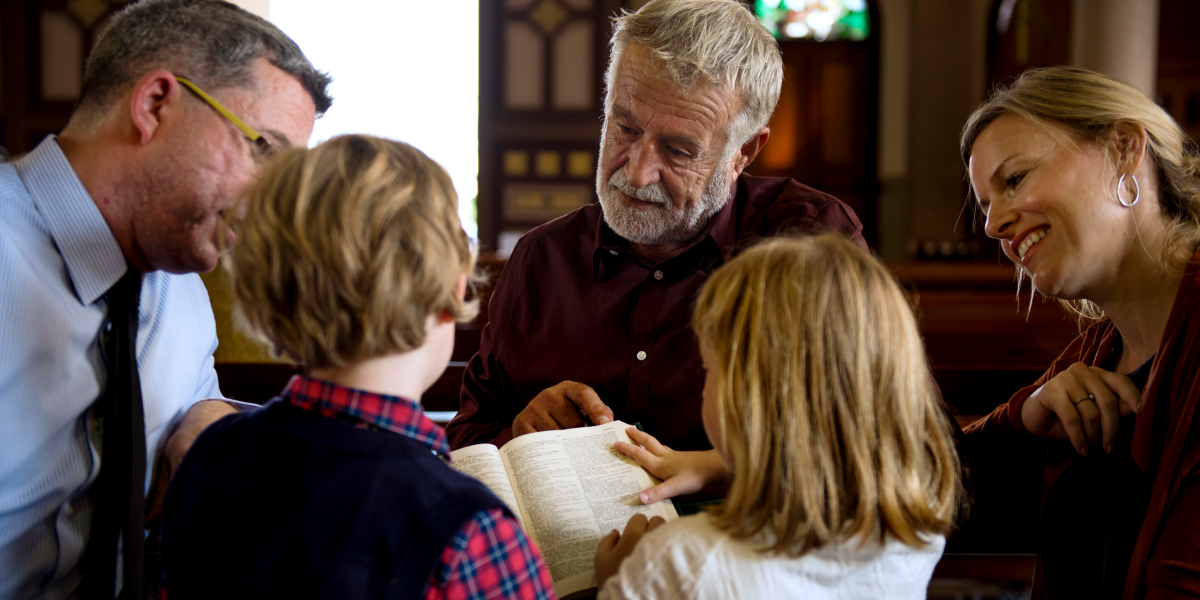
Embracing Community: The Role of Fellowship in Maintaining Your Faith
Embracing Community: The Role of Fellowship in Maintaining Your Faith In the walk of faith, solitude can be a sanctuary for contemplation and individual growth. However, the true vibrancy of one’s spiritual life is often…
Embracing Community: The Role of Fellowship in Maintaining Your Faith
In the walk of faith, solitude can be a sanctuary for contemplation and individual growth. However, the true vibrancy of one’s spiritual life is often realized in the fabric of fellowship and community. Just as a single thread gains strength when interwoven with others, so our faith is fortified and enlivened when engaged with our fellow believers.
The early chapters of Acts paint a compelling portrait of communal faith in action. The believers shared life together, partaking in meals, prayers, and the apostles’ teachings, and there was a palpable sense of unity in their fellowship (Acts 2:42-47). This kind of deep communal bond was not just a byproduct of shared beliefs; it was a lifeline of support, accountability, and encouragement.
In his letter to the Romans, Paul emphasizes the multifaceted nature of the church body, reminding us that “just as each of us has one body with many members, and these members do not all have the same function, so in Christ we, though many, form one body, and each member belongs to all the others” (Romans 12:4-5). Each unique contribution enriches the body, creating a synergy that bolsters individual and collective faith.
Nurturing Faith Within the Tapestry of Community
Engagement in Small Groups: Delving into scripture and sharing life experiences in a smaller, more intimate setting allows for a level of vulnerability and connection that can be transformative. These groups become a greenhouse for growing faith.
Practice Hospitality: The practice of opening your home or your table can be a profound expression of fellowship, creating opportunities for relationship building and mutual encouragement.
Volunteer Together: Corporate service projects not only extend the church’s outreach but also reinforce the communal bonds and the joy of shared service.
Celebrate Each Other: Acknowledge and celebrate the milestones and achievements within your community. Recognition of others’ spiritual growth and life events fosters an environment where faith is treasured.

The Role of Community in Scripture and History
The narrative of the New Testament church highlights the centrality of a faith community. It was within this structure that the early church thrived despite persecution and hardship, each believer playing a pivotal role in the growth and edification of the church family.
Historically, the importance of community can be seen in the formation of religious orders in Christianity, where monastics would band together not just for ascetic practice but for mutual support on their spiritual journey. Equally significant was the role of religious guilds in the Middle Ages, which served as a nexus between faith, craft, and mutual aid.
The Protestant Reformation further underscores the power of community in shaping faith, as reformers like Martin Luther and John Calvin emphasized the priesthood of all believers and established congregations that functioned as supportive faith communities.
Cultivating Communal Ties
Building a strong faith community is as essential today as it was in the past. Here’s how you can actively cultivate these connections:
Join a Ministry: By joining a church ministry that aligns with your interests or talents, you not only serve others but also build relationships within a supportive environment.
Attend Regular Services: Simply showing up can be a powerful act of faith. Regular attendance can create a rhythm of connectivity with others and with God.
Initiate Spiritual Conversations: Talk openly about faith in your daily interactions. Such conversations can deepen relationships and provide opportunities to both give and receive spiritual insight.
Create Space for Others: In a world where busyness rules, consciously make space to listen and be present with others in your faith community. Authentic presence can lead to lasting bonds.
Be a Mentor or Mentee: Engaging in mentorship either as a guide or a learner can reinforce your faith and that of others. The exchange of wisdom and experiences is mutually beneficial.

Building the Beloved Community
The beloved community, a term popularized by Dr. Martin Luther King Jr., captures the essence of what faith communities strive to be: a space of unconditional love, support, and collective spiritual development. As we nurture the ties that bind us to our local and global faith families, we find our beliefs reinforced by the shared journey of those around us.
Ultimately, embracing community is about recognizing that while our faith is personal, it was never meant to be solitary. In the shared trials and triumphs of our congregational lives, we catch glimpses of a vibrant faith in action. The passion of worship, the warmth of shared meals, and the fortitude of a shared mission weave a communal fabric that clothes each individual in the richness of a faith that is lived, loved, and upheld together.